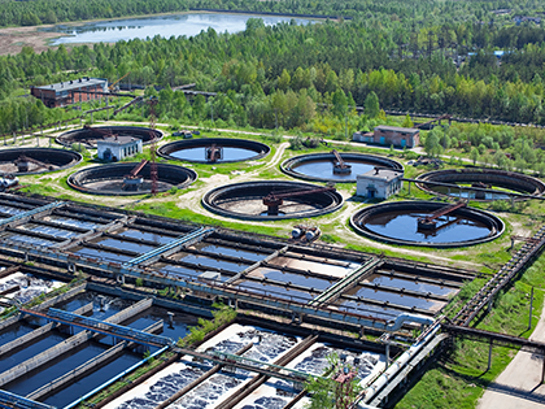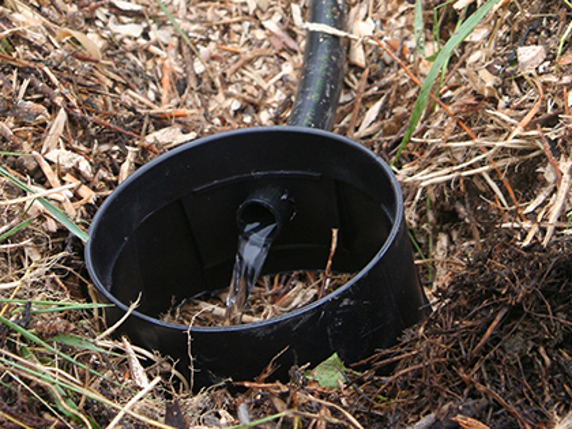
World Water Day is held on March 22 each year. The mission of this day is to increase awareness for water related issues. In 2017, the theme is “Wastewater” and its effects on our cities, homes, industry and agriculture. Wastewater is a valuable resource and we, as a community, need to work together to reduce and reuse it.
What is Wastewater?
Wastewater can be most simply defined as a community’s spent water supply (env.gov) and can originate from homes, businesses and industrial buildings.
There are two main types of wastewater, domestic and non-sewage. Starting with Domestic Wastewater, which is the type that you most likely would encounter inside your home.
- Greywater - Water from any non-toilet plumbing, showers, sinks and tubs.
- Blackwater – Water from the toilet (Has been mixed with waste), kitchens (including dishwashers) and clothes washing machines.
Non-sewage types of wastewater and will typically be found outside of your house. Stormwater can be found in your house during flood conditions. (If this is the case, you should take immediate corrective action to prevent mold or mildew). This is water that originally comes from rain and/or snow/ice melting. Stormwater easily picks up debris and contaminants from the surrounding area and carries them to our lakes, streams, rivers and oceans. (If you would like to learn more about water, please visit wateristhenewgold.com)
The Basics of Your Home’s Plumbing System
You have two subsystems. Quite simply, one brings freshwater in and another takes the used water out. Incoming freshwater (also known as “potable water”) comes from a local treatment center. A meter measures the amount of freshwater that enters your house. All water that comes into your home is under pressure, so that it can travel wherever it is needed in your home. A system of piping connects all of your appliances’ fixtures that require water. Cold water is ready for immediate use but hot water must first pass through a hot water system (either standard or tankless water heater).
A completely separate set of pipes, your drainage system, is used to direct contaminated water outside of your home. Inside your home the pipes consist of a series of traps that form an airtight seal and help to keep sewer gases inside. These traps allow plumbers to easily access and clear clogs. All household drains will connect to an underground sewage line or a septic system.

The underground sewage line connects directly to a wastewater treatment facility. If you use a septic system, the solid materials are stored during the decomposition process and filtered out. The remaining water exits into a drainfield, which provides the final treatment to your wastewater. Harmful bacteria and viruses are removed and filtered out by the soil. If your home is positioned too close to a groundwater or surface water source, there are alternative septic systems that you can use. Find out more by visiting (epa.gov)
Sanitary Sewers Versus Storm Sewers
Early in the 1900s, industries were still simply dumping waste and raw sewage directly into rivers and streams. Legislation was introduced and infrastructure was built in the cities to prevent cross contamination.
Storm sewers collect stormwater and other runoff and carry it back to other areas of surface water (i.e. ponds, lakes, streams, rivers and oceans.) They are not designed to handle raw sewage or hazardous wastes. Sanitary sewers carry wastewater directly back to your local wastewater treatment facility. There, this water can be filtered and treated with the proper chemicals to remove harmful contaminants and bacteria.
Water that has been processed by the water treatment facility is once again released into the environment. (epa.gov)
Wastewater and the Environment
One of the great things about wastewater is that with proper care, it can be reused and recycled. Greywater (which comes from showers, sinks and tubs) can be used with little or no treatment to water gardens, fill toilets for flushing and clothes washing.

Advantages for reusing greywater can include: using fewer resources, cutting down on pollution in public water systems, reducing water bills, and decreasing demand on public infrastructure resources. (For more information about reusing greywater, please visit energy.gov.gov)
Use your household drainage system responsibly. Wastewater treatment facilities are designed to treat organic materials, not hazardous chemicals. Be sure to dispose of non-flushable materials in the garbage can or take them to an appropriate hazardous waste disposal site. You don’t want your pipes to clog, causing potentially expensive repairs, and you don’t want these items to possibly end up in lakes or streams.
It is difficult to believe that in 2017, there are still over 663 million people that are still without a safe water supply close to their home. Take action and wherever you are and whatever you do on March 22, make it all about water! Visit worldwaterday.org for more information.
Let ARS/Rescue Rooter Help
Our ARS/Rescue Rooter specialists can help you make the right choices for creating a more water-friendly household. Call ARS®/Rescue Rooter® at 866-399-2885 to learn more. Follow our Facebook or Twitter page to learn handy dandy tips on water conservation in your home!






